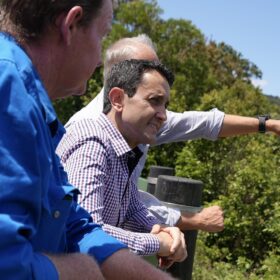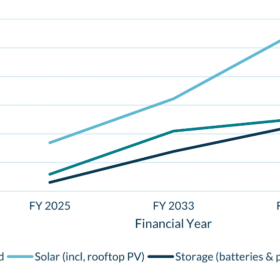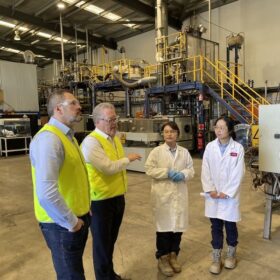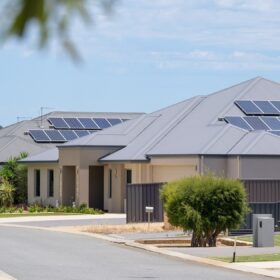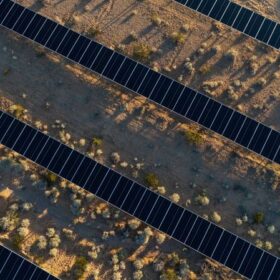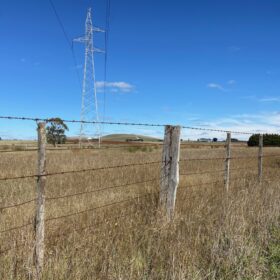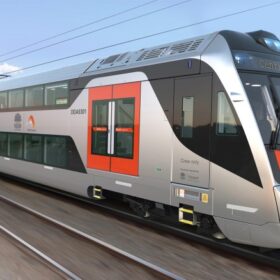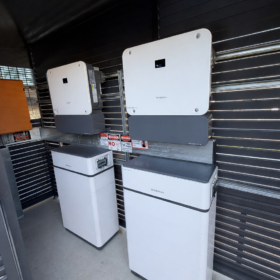Queensland eyes smaller options after pulling plug on 120 GWh pumped hydro project
The new Queensland government says it is investigating opportunities to build multiple smaller, more manageable pumped hydro projects after formally scrapping the 5 GW / 120 GWh Pioneer-Burdekin pumped hydro project slated for the state’s central coast.
Trina targeting Australian-made solar modules by 2027
Chinese manufacturing giant Trinasolar says it could be making panels in Australia as soon as 2027 as part of its joint-venture plans with Sydney-based PV innovator SunDrive Solar.
Cornwall tips 150 GW renewables boost for NEM within two decades
Australia’s main electricity grid is predicted to increase its solar, wind, and energy storage capacity by more than 150 GW by 2043 according to new projections published by energy market consultancy and research group Cornwall Insight.
Aiko teams with Australian research centre to push solar cell efficiency limits
Chinese solar cell and module maker Aiko Solar has partnered with the Australian Centre for Advanced Photovoltaics on a $6 million initiative aiming to achieve 30% efficiency with interdigitated back contact silicon solar cells.
Livium lands state support to develop WA battery recycling plant
Battery technology company Livium’s recycling subsidiary Envirostream Australia has secured an $850,000 grant from the Western Australia government to develop a battery recycling facility in the state.
Rooftop solar install rates on rise after record month
Rooftop solar installations in Australia recorded a 6% jump in October with the latest monthly data revealing 279 MW of small-scale rooftop PV was installed on household and business roofs across the country last month.
Quinbrook announces sale of Energy Locals retail platform
Renewable energy focused investment manager Quinbrook Infrastructure Partners has offloaded electricity retailer Energy Locals to a consortium led by Australian fund manager Palisade Impact.
TCV reveals preferred easement for Victoria to NSW interconnector project
The preferred easement for the 240-kilometre Victorian section of the Victoria to New South Wales Interconnector West transmission line project has been released by Transmission Company Victoria.
Toyota teams with BHP to test electric HiLux dual-cab
With electric vehicle demand continuing to grow in Australia, Japanese auto manufacturer Toyota has revealed it will team with mining giant BHP to trial the “first ever” battery-powered HiLux dual-cab ute.
NSW transport service trains its sights on multiple 30 MW grid-scale batteries
State government services and road agency Transport for NSW is investigating the deployment of multiple 30 MW grid-scale battery energy storage systems to help decarbonise its Sydney heavy rail network.
